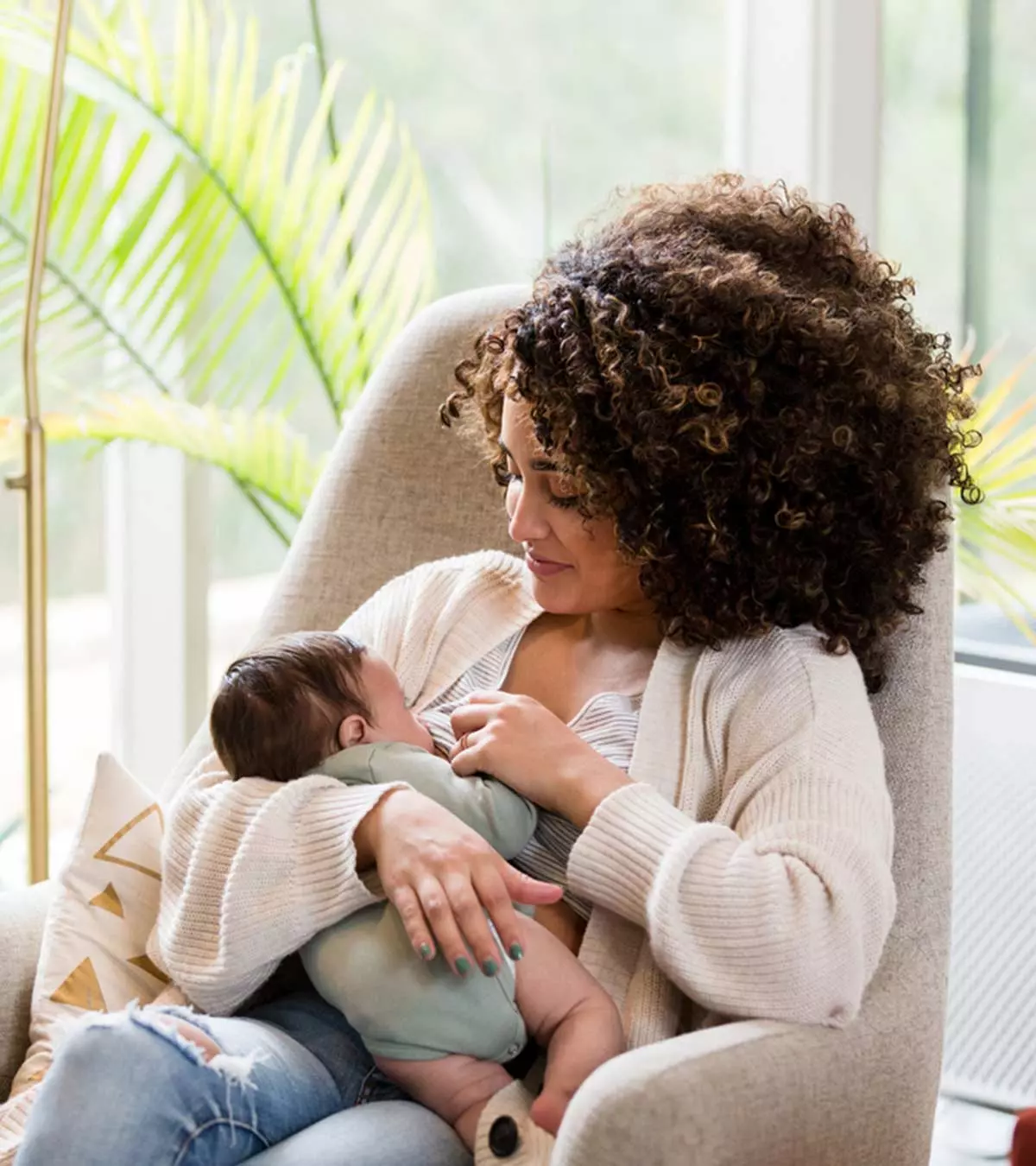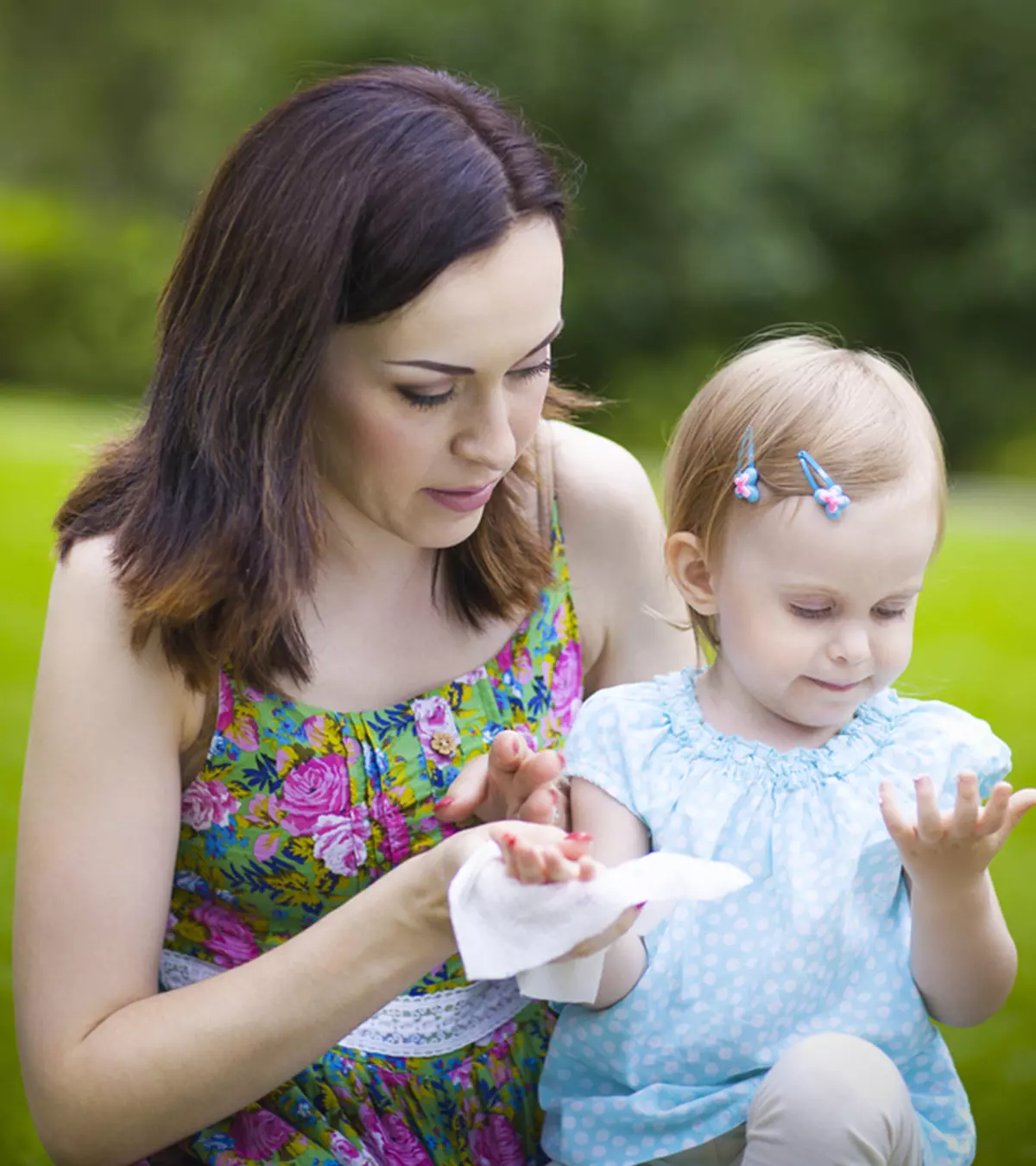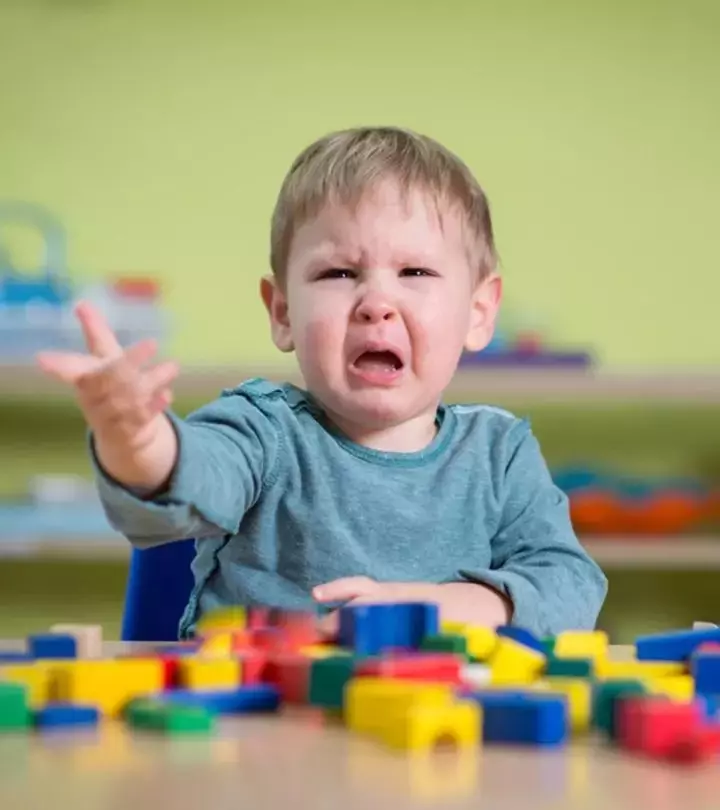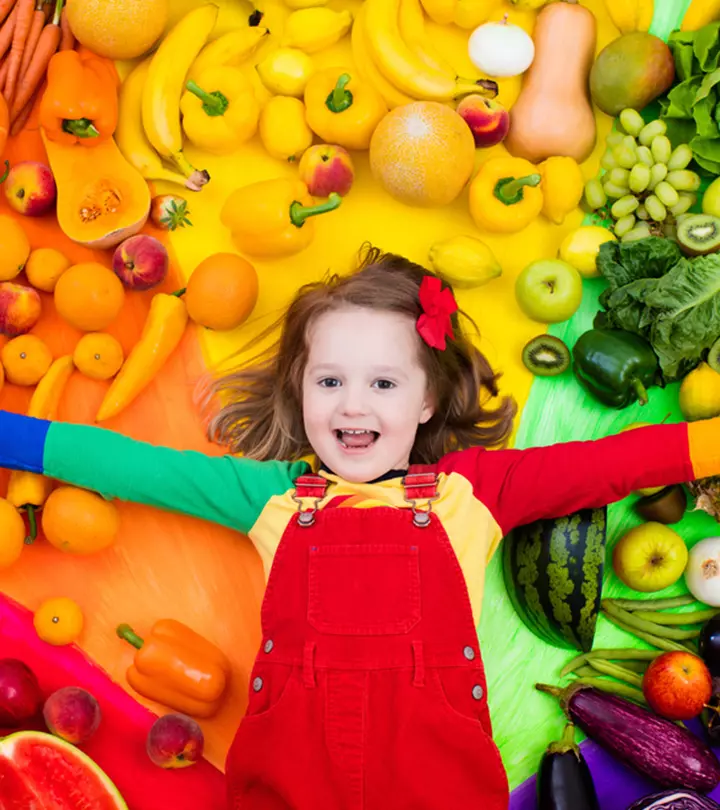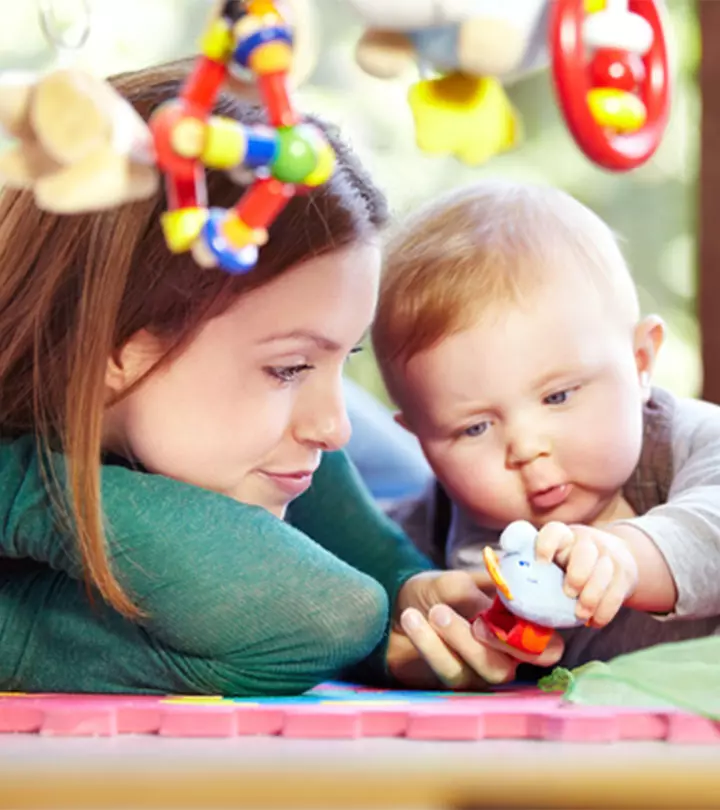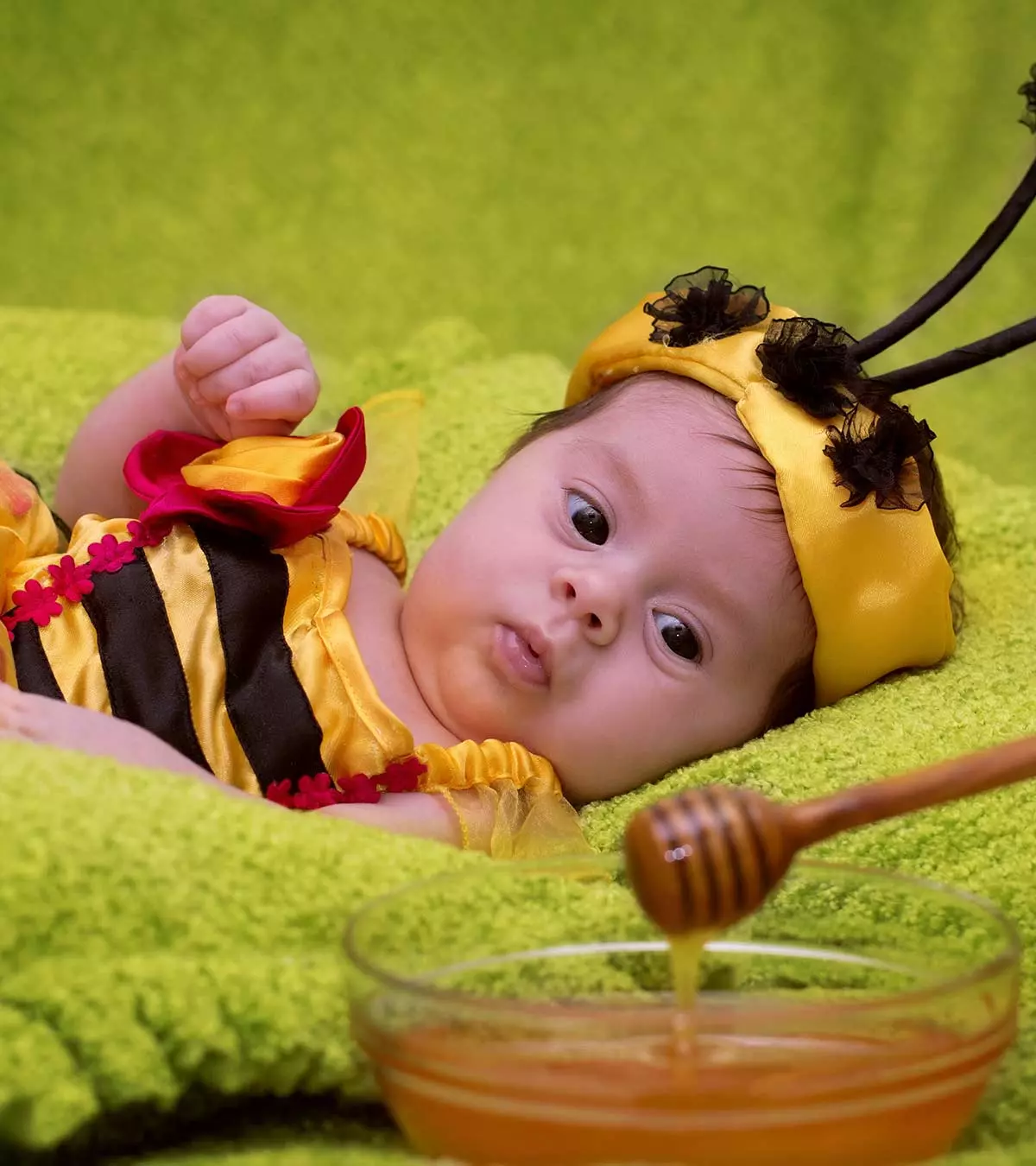
Image: Shutterstock
Honey is known for its rich composition. It has been a major skincare trend for the longest time since it is considered an organic ingredient. It’s sweet, natural, healthy, and it happens to be one of the rare foods with the longest shelf life. It only seems somewhat safe to give your baby this sweet delight. But did you know that honey can be potentially dangerous for your little one? Babies, especially infants, are extremely sensitive to pretty much everything, and their small bodies can have a bad reaction to foods that don’t suit them. So make sure your baby stays away from honey until they turn one year of age. Let’s now dig deeper into the reason behind why honey is bad for babies and address some other questions that you may have regarding this as well!
1. Why Is Honey A Strict No For Babies?
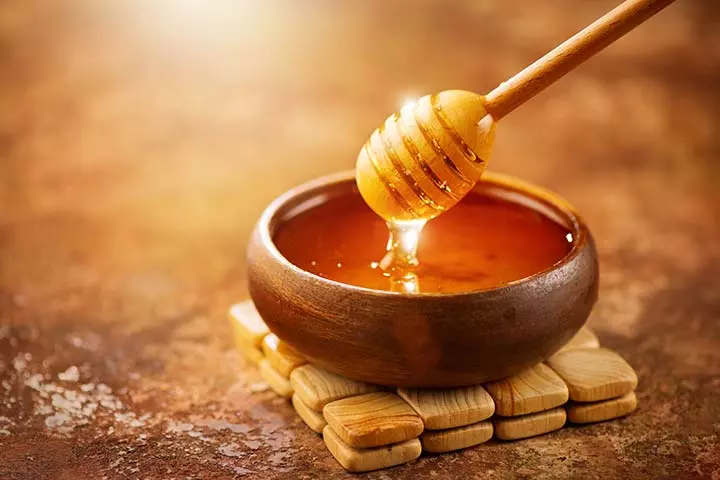
Image: Shutterstock
We have two words for you — Clostridium botulinum. These are tiny spores that naturally occur in honey. Unfortunately, Clostridium botulinum releases a specific kind of toxin. As adults, we can handle this, and our bodies will fight it. But babies have a sensitive digestive system that is yet to fully develop, so tackling these tiny spores is close to impossible. This, in turn, will lead to infantile botulism (1).
2. What Is Infantile Botulism?
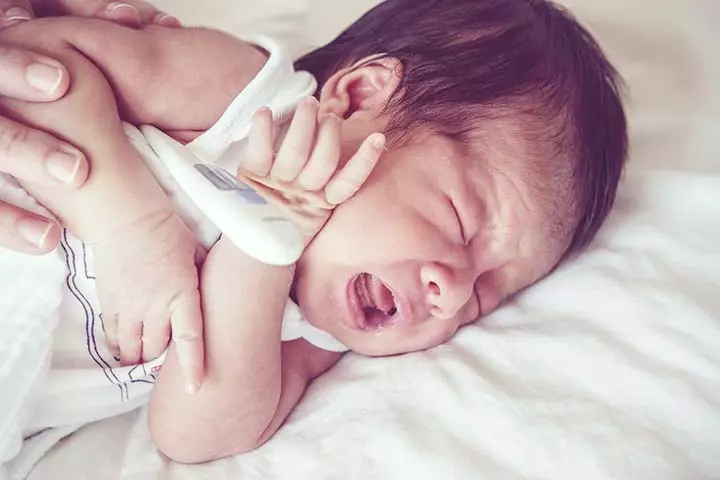
Image: Shutterstock
As we mentioned, it is a bacterial infection that is caused due to the ingestion of Clostridium botulinum spores that are found in natural honey and sometimes in soil or rocks. This multiplies in the intestine, thus causing this disease (2). The symptoms of Infantile Botulism include drooping eyelids, irritability, and muscle weakness, which can lead to trouble with eating, sucking, swallowing, and even breathing. It can also cause constipation and affect the movements of your child. It is crucial to treat it at the earliest as it can prove fatal.
There are many ways to diagnose this condition. One of the simple ways would be to check the baby’s reflexes. Put on surgical gloves that are freshly sanitized then insert one finger into the baby’s mouth. Normally, the infant would tightly grab the finger. But if s/he is showing delayed reflexes or inability to suck, there are chances of the disease being present in the baby.
3. Will All Honey Cause Infantile Botulism?
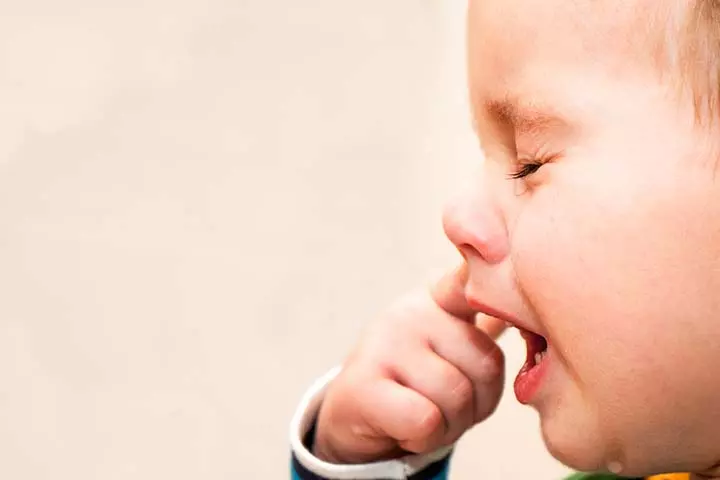
Image: Shutterstock
In 2018, a study was conducted in Poland, where over two hundred honey samples were tested. Out of these, close to 2.1% of the samples contained Clostridium botulinum spores (3). It’s important to know that soil and rocks could have these spores too, but it is most commonly found in honey. You could never be too sure if the honey you got your hands on contains these spores, no matter where you sourced it from. Whether it is freshly processed or raw, it is better not to take chances.
4. How About Pasteurized Honey?
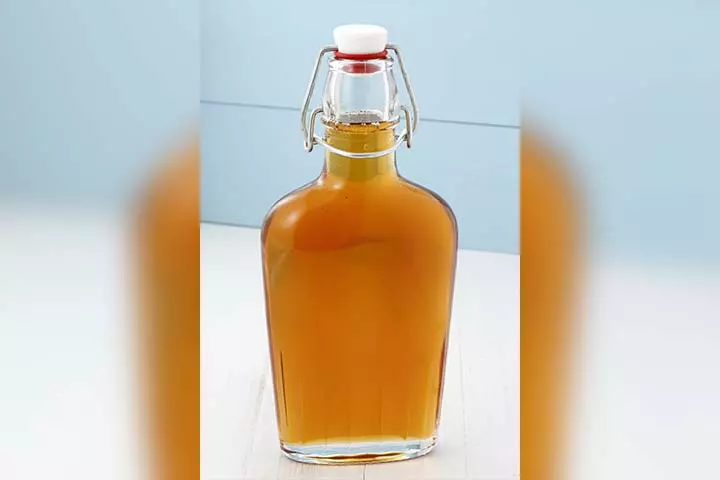
Image: Shutterstock
No. The stakes are high, and you just can’t be too sure if pasteurization does a good job of killing the spores. Your baby’s immune system is barely developed yet — it’s different in the case of adults and older kids who can consume honey, but don’t take chances with your little one!
5. How About Some Cooked Honey?
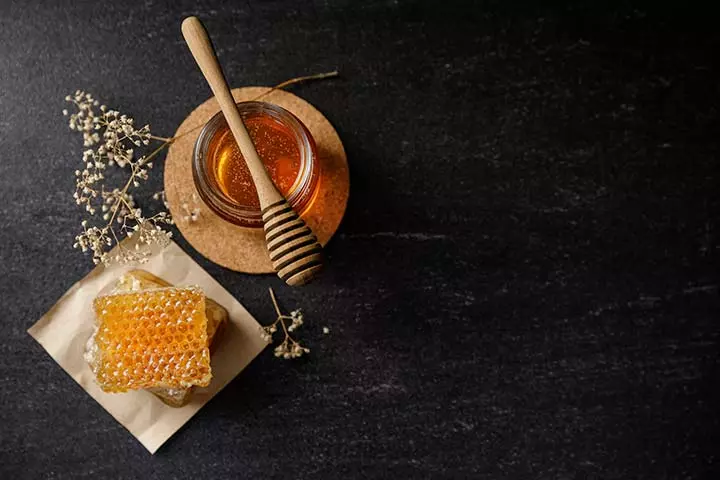
Image: Shutterstock
No to this one too! These spores are super strong. You’ll have to boil the honey for around ten minutes straight for them to be killed, and even then, you cannot be too sure. You can’t bake it either because that won’t kill the spores. Cooking the honey does not mean you have gotten rid of the impurities. In fact, heating honey can lead to very harmful effects, even in adults. First of all, honey’s taste becomes bitter and all its nutrients can potentially disappear and get destroyed. It will only be left as a gooey mess that you can use as a substitute of Fevicol. Never experiment with cooking honey as it will spread toxins in your body plus ruin your digestive tract and juices. Forget feeding this to your precious little baby.
6. What If You Already Gave Your Baby Honey?
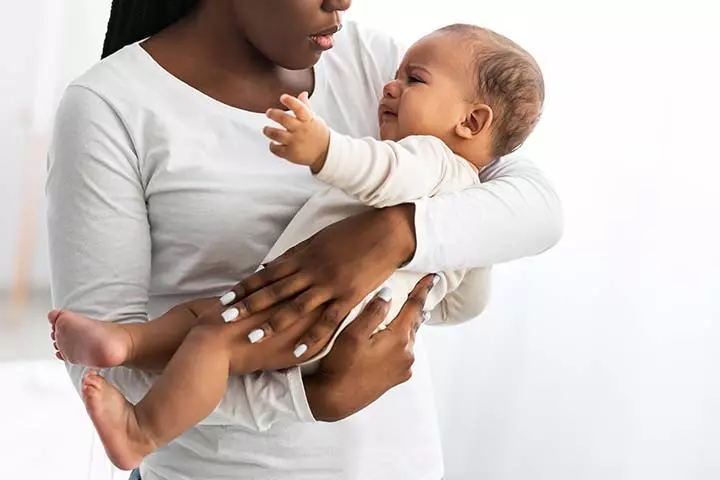
Image: Shutterstock
Not many people know that honey is dangerous for babies, so it can happen to the best of us, so don’t beat yourself up for it. Spread some awareness that it is definitely not a replacement for sugar that people can feed their newborns. Watch out for any symptoms, and contact your medical healthcare provider, as it’s better to manage this at the earliest.
7. Can Breastfeeding Mothers Consume Honey?

Image: Shutterstock
This one is in your favor — you don’t have to deprive yourself of honey just because you’re feeding your baby, as the spores cannot be transmitted via breast milk. Also, your immune system is well-developed and strong enough to tackle these spores, so you have nothing to worry about.
8. Why Wait Until Babies Turn One?

Image: Shutterstock
By the time your baby is twelve months old, their immune system has developed enough to be able to kill the spores (4). It’s best to wait until this time to be entirely sure. A year is granted for the complete development of your child’s internal organs, bones, digestive system and others. Sometimes that’s not the case with some babies, so you should be sure of all health reports before feeding honey to your baby. After all, prevention is better than cure.
Make sure you carefully study your baby’s health progress with regular checkups with the doctor. We understand that there is a list of things that you cannot offer your child, but patience will lead to your baby’s healthy life. Honey is lovely, and we often can’t wait to give our babies the taste of its sweetness. Wait till your baby turns a year old; you can then go ahead! Having said that, it also depends on your child’s immunity system. If there are digestive problems and other recurring health problems, you can check with your doctor to be double sure. Did you know that honey was bad for babies? Let us know in the comments below!
References
- The hazards of honey: infantile botulism
https://www.ncbi.nlm.nih.gov/pmc/articles/PMC3028016/ - Infantile Botulism
https://www.ncbi.nlm.nih.gov/books/NBK493178/ - Clostridium botulinum spores in Polish honey samples
https://www.ncbi.nlm.nih.gov/pmc/articles/PMC6167343/ - Association between honey consumption and infant botulism
https://pubmed.ncbi.nlm.nih.gov/12432974/
Community Experiences
Join the conversation and become a part of our nurturing community! Share your stories, experiences, and insights to connect with fellow parents.

